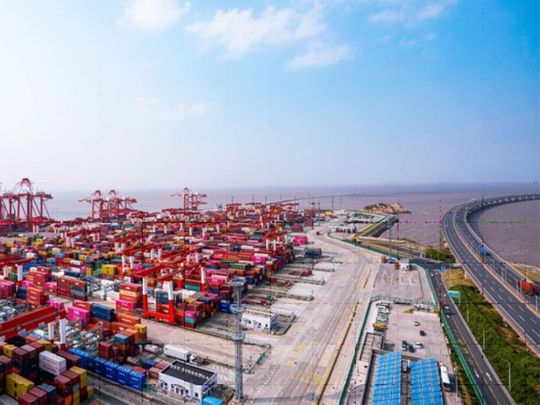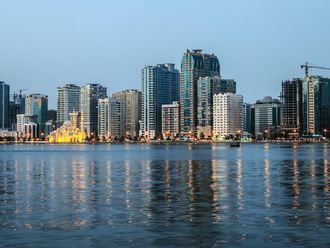
DP World Ltd is looking to expand operations at the UK’s Port of Southampton by developing warehouse space to meet the growing demand from companies in Britain that want to fortify supply chains against disruptions to global trade.
Ernst Schulze, the CEO of DP World in the UK, said the plan is in “early development” but “we are extremely excited for the opportunities this would open up for our customers”. The project would be pursued on a smaller scale but similar in concept to DP World’s 2-square-mile logistics park adjacent to its London Gateway port facility.
The demand for warehousing in the UK has soared since 2020 as Brexit and the pandemic spurred companies to pad inventories and ease the flow of foreign-made finished goods and parts needed for assembly. Industrial space is especially sought-after around major ports because of their links to emission-reducing rail connections.
According to Colliers, a commercial real estate advisory firm, average rents for industrial and logistics space in the UK rose by 10.4 per cent last year, topping the record increase set the previous year. Even after a record amount of speculative square footage was delivered in 2022, rents are forecast to keep rising this year.
In the southeast, which includes the London area and some of the nation’s busiest container ports, “supply remains low when compared to historical standards and occupier demand, as evidenced by the strong annual average rental growth of 8.8 per cent witnessed last year”, according to a February report from Colliers.
UK supply costs
For companies that trade globally, supply chain costs have risen much more in the UK than in economies nearby, according to Luis Gomez, European president of XPO Logistics, a Greenwich, Connecticut-based transportation company that integrates end-to-end logistics operations across Europe.
“Customers are looking to be more autonomous in the UK, having their own warehouses and not relying as much on the flows between the UK and continental Europe,” Gomez said. “There’s been a clear lack of driver and space availability and when there’s less availability the price goes up. That’s also something impacting the UK economy.”
Such market dynamics are fueling expansions like those of DP World, which is has pledged to invest 1 billion pounds ($1.22 billion) in the UK over 10 years, including 350 million pounds for an all-electric fourth berth at London Gateway that’s scheduled to open next year and boost capacity by one-third.
In November, Dubai-based DP World - which handles about 10 per cent of global container trade - announced an intermodal train service connecting London Gateway with Southampton, where most of the cargo originates from non-European countries.
“We think the UK is a good market,” Schulze said. “Of course we’ll see some ups and downs, but in general long-term it is a good place to be.”
Key to that longevity is maintaining as UK government policy the concept of freeports - the word used to describe for trade gateways that are granted investment incentives on taxation, regulations and regimes like customs clearance to boost otherwise blighted economic areas.
Pioneered by DP World’s Jebel Ali Free Zone and espoused by now-Prime Minister Rishi Sunak when he was a member of parliament in 2016, the freeport idea has, according to Schulze, helped at London Gateway.
“Freeports are something that for us as a company we are pushing hard with the government to make it successful and even extend it,” he said.







